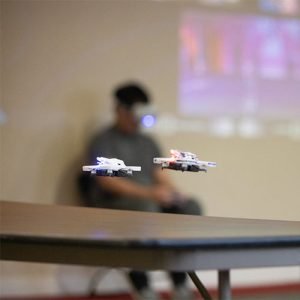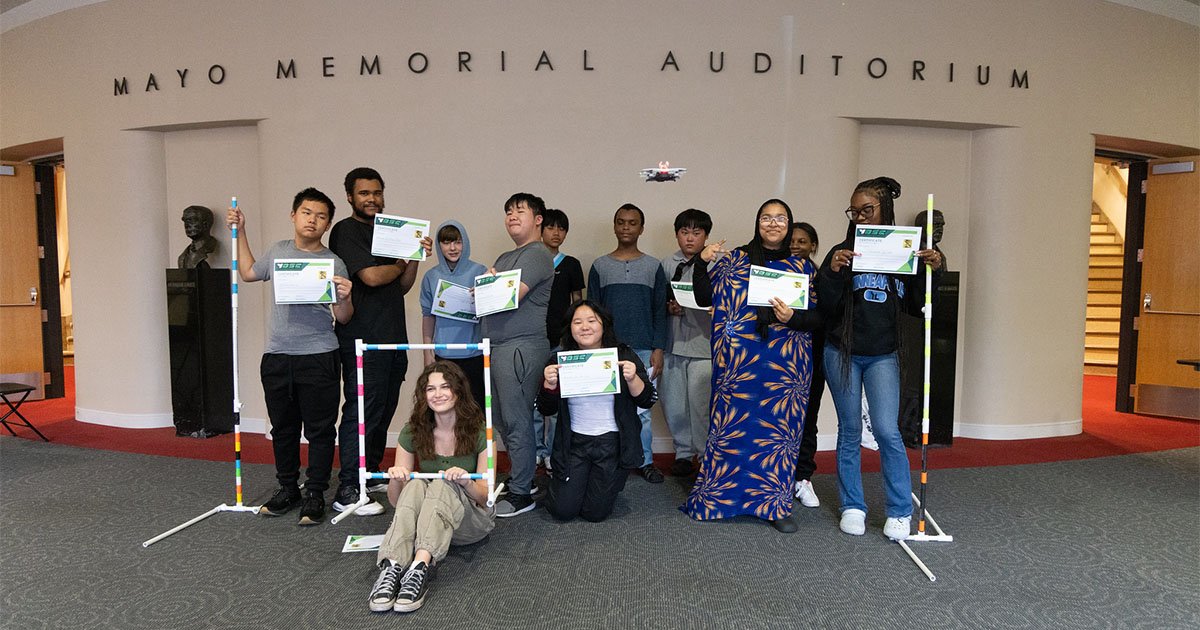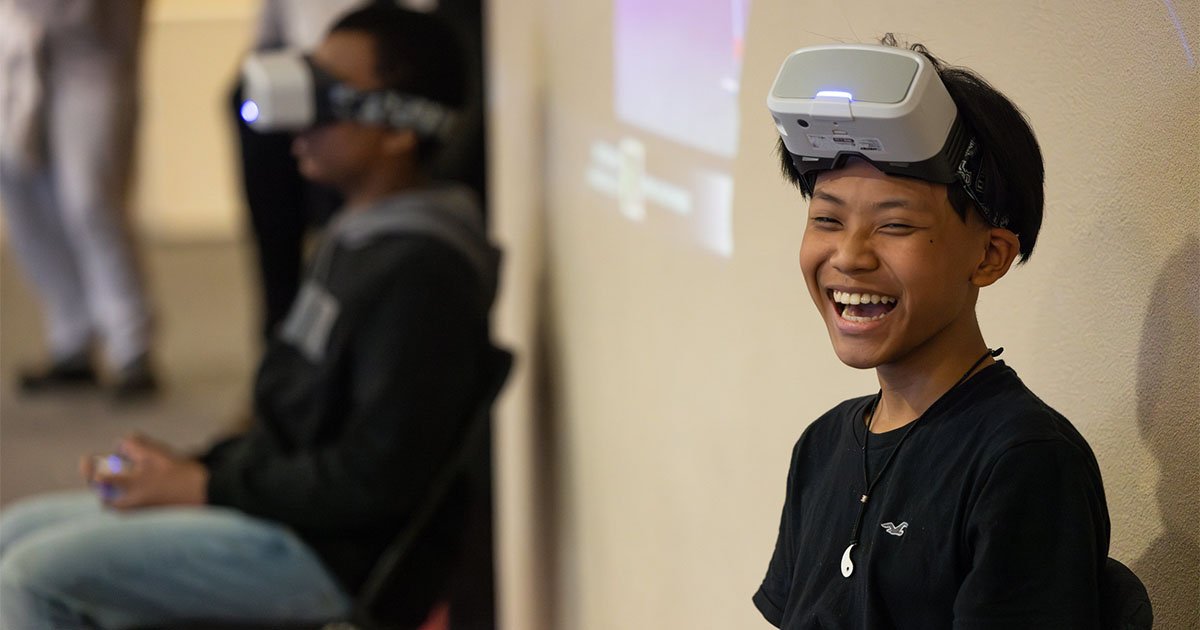On a recent Friday morning, an enthusiastic crowd gathered in the lobby outside Mayo Memorial Auditorium to watch teenagers engage in a heated drone-racing competition. In a venue normally reserved for faculty seminars and guest lectures, onlookers cheered as the teenaged drone pilots carefully maneuvered their crafts along straightaways and hairpin turns and, eventually, through a small window that served as the finish line.

The race marked the culmination of Public Health Drone Camp, a week-long camp for Twin Cities students ranging in age from 12 to 18 that was spearheaded by University of Minnesota School of Public Health (SPH) Professor Ruby Nguyen. The camp was a collaboration between SPH, Youth Drone Sports Championships, and organizations that focus on educational enrichment for children in underserved communities, including Project Success, Beyond Walls Twin Cities, and the UMN Urban Research Engagement Center. And, yes, the camp was an opportunity for students to have fun, but there was also a more serious mission—sparking an interest in public health as a career option by showing how drone technology is used as a public health tool.
At a time when the public health workforce is critically understaffed—SPH researchers have estimated that the public health workforce needs a minimum of 80,000 people to meet even basic needs—there is an urgent need for people to enter the field. That’s the motivation behind Minnesota Prepared, a collaboration between SPH, the Minnesota Department of Health (MDH), and other governmental public health agencies across Minnesota with a mission to establish, expand, and sustain the state and local public health workforce so we are better prepared for future public health emergencies. Building a larger, and more diverse, public health workforce is a key goal of Minnesota Prepared, and Nguyen says the Public Health Drone Camp was a direct outgrowth of Minnesota Prepared.

“Public health agencies are spread thin, and we urgently need to increase the pathways for people entering the field,” Nguyen said. “We need innovative approaches, and we need to cast a wider net that includes middle-and-high-school students, as well as people from traditionally underrepresented communities. This camp aimed to convince younger Minnesotans that public health can be an exciting and rewarding career path.”
With just one week to introduce the participants to core public health concepts (and learn to fly drones!), each day focused on a discrete topic, such as epidemiology, health policy, environmental health, and biostatistics. Guest speakers from each of these areas described the unique roles drones play in their research or work. SPH Assistant Professor Kelly Searle explained how drone technology helped survey remote communities in Africa to better understand how severe weather events are impacting malaria transmission. Assistant Professor Anne Eaton and Associate Professor Ashley Peterson from the Biostatistics and Health Data Science Community Outreach and Engagement committee used a tool to determine air pollution levels which could be collected by drones. SPH Alumni Society Board President Susan Leppke (MPH ‘07), senior director of public policy and strategic partnerships for the Association for the Advancement of Blood & Biotherapies, explained the critical role drones can play in delivering blood quickly during public health emergencies. Other speakers addressed how drones are used to sample and analyze the amount of pollution in the air.
“Youth learn through play,” Nguyen explained. “With that in mind, we aimed to create a curriculum for the camp that paired hands-on drone training with lessons about how drones are being put to a wide variety of uses to advance public health goals. As students learned how different types of drones are used to address real-life public health challenges, they also engaged in conversations about how the drones they were learning to pilot could play a role in keeping communities safe.”
The camp was also a new experience for Adán Torres, Project Success’s senior manager for student engagement, who said the subject matter required a new approach. “The camp’s multifaceted approach told through the use of drones really worked. Several students have told me how excited they were to come and participate in this camp.”

All in all, the first-ever Public Health Drone Camp achieved its key goals. Young people from diverse backgrounds gained an understanding of public health’s essential role in protecting all communities. And the drones — as vehicles of understanding and literal vehicles of transportation — proved to be a gateway to unlocking these young people’s understanding of public health and its potential as a career path.
That message was reinforced by Lee Garr, the director of academic and community partnerships at Beyond Walls.
“The camp was a great experience for our kids, and I can’t stop raving about it,” Garr reflected. “The kids who participated are mostly BIPOC kids, and many of them went into this experience thinking public health may not be for them. But the camp really opened their eyes—all the interactive activities made it really come alive for them, and I heard kids afterward saying things like ‘public health can be cool.’”
As we continue to prepare for future public health emergencies and build a larger, more diverse public health workforce, innovative approaches like this that open people’s eyes to the benefits of public health will continue to prove essential.

